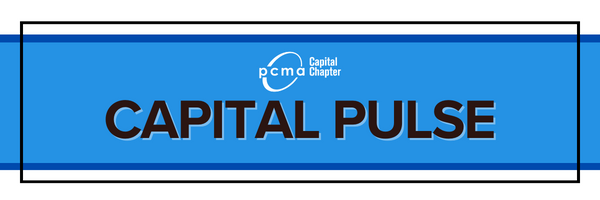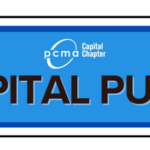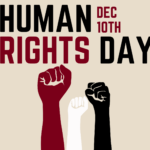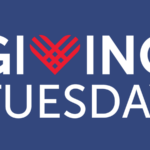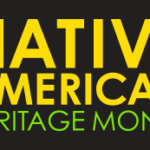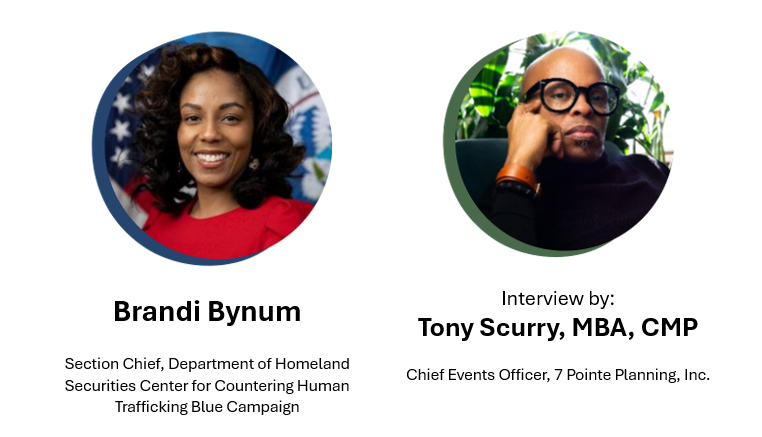
| Second only to drug trafficking, human trafficking is a federal crime that is hugely impactful on the United States and around the world. I had the pleasure of interviewing Brandi Bynum, an expert on the subject matter, about human trafficking. Brandi explains what human trafficking is, what it is not, how it impacts the business events industry, and what we can do about it within our industry. Tony: Please tell us who you are, what government agency you work for, and what you do for that agency. Brandi: I am Brandi Bynum and I currently serve as the Section Chief for the Department of Homeland Securities Center for Countering Human Trafficking Blue Campaign. We are a national public awareness program designed to educate the public law enforcement industry on how to recognize and report human trafficking. We also work with communities that are more susceptible to human trafficking so they can learn how to protect themselves and protect others. Tony: What is the Blue Campaign? Brandi: At the Blue Campaign, located at the DHS Center for Countering Human Trafficking, we are a national public awareness campaign designed to combat human trafficking. We train state, local, tribal, and federal law enforcement officials, on how to combat trafficking through the victim centered approach, which means we want them to place equal emphasis on catching the trafficker, as well as getting that victim out of the human trafficking situation. We educate the public through social media, through free events, and industry on how to properly report suspected instances of human trafficking. Part of our program is on the prevention side. We have identified communities that are more susceptible to human trafficking, and we want to teach them what human trafficking is and how they can protect themselves and protect others from becoming victims of it. Tony: What is the impact of human trafficking on the United States? Please speak to its prevalence, the financial impact, and any other relevant areas. Brandi: Human trafficking is everywhere, not just overseas, but right here in communities in the United States. Here, at Homeland Security Investigations, we have special agents that have authority in the government to investigate the crime. We have had at least one human trafficking case in all 50 states. So, we know that it’s happening in the United States and not just in big cities, but in rural and suburban areas as well. We estimate that there are 48 million people worldwide every year that are victims of human trafficking. So, it is very prevalent. Human trafficking generates $150 billion in profit. It is a crime that is second to drug trafficking when we talk about the financial impact it has on the world. Tony: How is the business events industry impacted by human trafficking? Brandi: We believe, at the Blue Campaign, that education is super important. What we’ve seen is that wherever there are a lot of people gathered at one time, it is an event where trafficking can occur because you have so many people gathered in one place. Therefore, what we want to see, on the event side, is that planners or anybody in the industry is educated on what it looks like and know how to properly report it. On the labor trafficking side, which is the part we don’t talk a lot about because we usually talk about sex trafficking, but human trafficking is both labor trafficking and human trafficking. Both dealing with the exploitation of a person for something of value, is that we want to make sure that companies and businesses are not having any forced labor in their supply chain. Industry professionals need to be sure that any goods that they may be selling, any goods that they may be using, any businesses that they may be working with are not a result of forced labor. A good example is if you’re importing goods from China or Indonesia or Africa, you want to make sure that you’re doing your due diligence and making sure that wherever those products are coming from, that they’re free of forced labor. Tony: As it relates to the business events industry, because we do a lot of work in hotels, how does our involvement or our integration into hotels impact human trafficking? Brandi: Absolutely. We have toolkits for the hospitality industry where we are targeting people who work at the front desk, people who valet your car, housekeeping staff, managers, and supervisors. Because what we do know, is that traffickers do utilize hotels to traffic their victims, both male and female. So, we want to be sure that if someone is visiting a hotel or working with hotel personnel, that they’re keeping their eyes open and make sure that they recognize the signs by getting training, whether it’s from us or somebody else, to recognize how to report if they see somebody that’s being trafficked or if they see a patron that may be a potential victim of trafficking. What I’ve seen with event professionals is that they’re all through the hotel, in the back of the house and in the front of the house. So, you’re in a prime position to recognize maybe even more than someone who is just staying at the hotel as a guest. It’s really about recognition and reporting; because you’re in a prime location to where the crime is happening and where we’ve seen it happen many times before. Tony: What can the business events industry do to help combat human trafficking? Brandi: I think the very first thing is to become more aware. I think having conversations like what we’re having today and invite us out for free training. I have a team of folks at the Department of Homeland Security. And even though we’re located in Washington, DC, we have 30 field offices, so we can come where you are. Invite us out so that we can educate you on what the crime is. Because what we’ve seen a lot of in our work is people really don’t know what human trafficking is. They usually equate it to a movie, so they already have it in their mind on what they think it looks like and usually it’s the opposite. And so, we really want to educate them or have them be educated on what the crime actually is, what it looks like, and then how to properly report it either to the National Human Trafficking Hotline or to the DHS tip line, where you can report directly to law enforcement. We have materials you can order that can be placed out at your events. And it’s not something that’s really flashy. It can be something simple and as a small wallet size card that we call an indicator card. On one side, the card has the definition of human trafficking and human smuggling, which are two different crimes. On the back of the card, it has the indicators of human trafficking. You can order them for free. I think anytime you’re in a place where you can spread awareness and educate somebody, we should. Something else that the industry can do is become aware, as I mentioned, on the forced labor side, on what products from overseas are being produced by forced labor in their supply chain. We work very closely with the Department of Labor and with our own component agency, Customs and Border Protection. They have a list on their website on goods where we found were produced by forced labor. So, you want to make sure that you’re staying in compliance when you’re ordering things for your business events and when you’re working with various companies to put on the really great events that you guys are doing. Tony: If you recognize that you are using a supplier that is using forced labor, but it is to your benefit to keep using them, what, if any, are the repercussions that can fall upon you for continuing to use that supplier? Brandi: You can go to jail. In its simplest form, human trafficking is a federal crime. So, I think when you talk about that, of course, obviously there’s different crimes. Let’s just say kidnapping, because the crime of human trafficking sometimes gets looped in with kidnapping, is not a federal crime. So, if somebody is participating in kidnapping, that is against local laws. When you are involved in human trafficking, it then goes to the federal level, which comes with statutes and time in prison. So, that’s the first thing. Also, what we’ve realized on the forced labor side, obviously the product is cheap for a reason, because they are paying pennies per item being made. We can even talk about forced labor on the food side. I’m doing a project with NOAA, with fisheries and vessels, where there’s forced labor in the supply chain, with people who are working on the boats, getting your salmon and your tilapia. These people are forced to work with little or no pay, and if they don’t comply, they’re getting thrown overboard. So, when you buying goods that are a result of forced labor, that’s the other side of it. And we don’t like to talk about that, right? But these are real people with families that are being subject to cruel things that are happening just so you can get something cheap that may be a benefit for you and your business. So that’s why I encourage you to look at the Department of Labor’s website. I can share that with you that Customs and Border Protection have a list of organizations and countries where things are banned from even coming into the United States. So, we’re doing our due diligence on the federal side to identify those items that come in through tips. We will issue a withholding release order, which means that we will no longer be importing your items into the US because we now have proof that it is produced by force labor. So back to your question. . . . You will go to jail. I highly encourage you to find another vendor, spend a little bit more money, and think about the people that are on the other side of the crime, because it’s not some machine that is producing the goods that you’re getting for cheap. It’s real people. Tony: If someone is a victim of human trafficking or believes they have witnessed a victim of human trafficking, is there some place or someone they can contact to get help or be helped? Brandi: Absolutely. We promote two different tip lines. Here at the Blue Campaign, if you want to report suspected human trafficking, we encourage you to call toll free to the National Human Trafficking Hotline. Their number is 1-88-37-3788. They are available 24/7 and have hotline advocates that can take calls in over 200 languages. What we really love about this line is it’s anonymous, so you don’t have to give your name. We just want you to provide all the details. If you don’t feel comfortable calling, you can text, help or info to be free. The number to text is 23373. You can also submit a web form. So, there are so many different ways that you can report human trafficking to that line. That’s a non-law enforcement line because we know everybody doesn’t feel comfortable reporting to law enforcement. They take tips from community members, from organizations that may want to report a tip. If you’re a potential victim or if you think you recognize a potential victim. We encourage you to contact that line as well, because we service without having to go through law enforcement. I believe that if anybody is under 18, that tip line is required to report to law enforcement. But if you’re over 18, a consenting adult, you want to report a tip, that’s a good line. If you do want to report directly to law enforcement, we encourage you to contact our federal law enforcement line at the Department of Homeland Security. Same rules apply. It’s anonymous and available 24/7. That number is 1-866-347-2423. As I mentioned, you can call anonymously, report the tip, and that line goes directly to federal law enforcement. And then, if anybody is in immediate danger and you don’t remember those lines, just call 911. We are working with state and local law enforcement to train them on how to appropriately respond to cases as well. |

